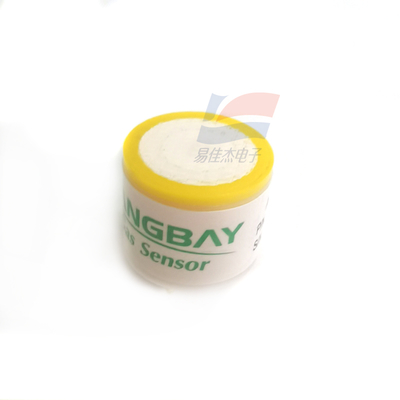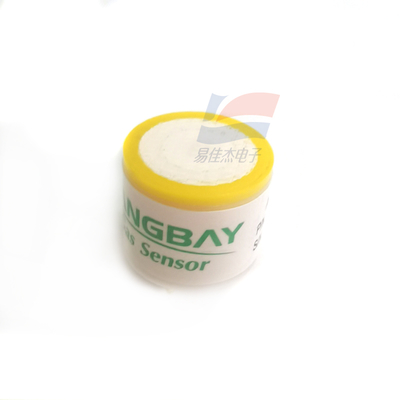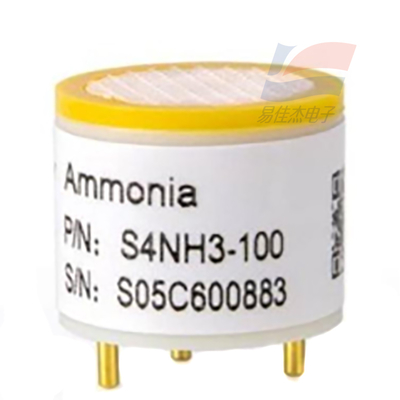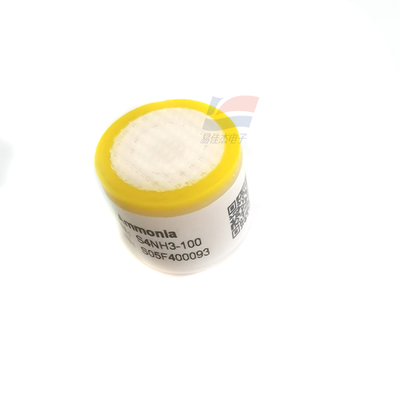Opis produktu:
YJJ S4-NH3 S4NH3-100 Elektrochemiczny czujnik amoniaku do wykrywania amoniaku w środowisku atmosferycznym
Charakterystyka:
Wysoka wydajność i wysoka precyzja pozwalają na stosowanie tego czujnika w wielu zastosowaniach, a jego kompaktowa i wygodna konstrukcja jest bardzo odpowiednia dla użytkowników produkcyjnych.
Czujnik ciśnienia HPSAC 3000 jest zainstalowany na podłożu ceramicznym o grubości 1 mm, z jedną lub dwoma rurami ciśnienia.
Opory grubofilmowe są indywidualnie przetwarzane laserowo, aby zapewnić kompensację temperatury i kalibrację punktu zerowego.
Zakres czujnika jest zaprojektowany w celu zapewnienia wygodnej wzmocnienia czujnika i zewnętrznego wzmacniacza różnicowego.
Do suszenia powietrza lub gazów i płynów nieżrących.
Model HPSAC 3000 został zaprojektowany do podniecenia stałym prądem.
Cechy
Ekscytacja prądu stałego
Łatwe w obsłudze opakowania DIP
Szeroki zakres kompensacji (0 do 70°C)
Zerowa kalibracja
Wysokiej wydajności aplikacja OEM
Reduktor, narzędzia pomiarowe i względna konfiguracja
Zakres ciśnienia od 10 mBar do 7 Bar (1 kPa - 700 kPa)
Urządzenia medyczne
Oddychacze
HVAC (ogrzewanie, wentylacja i klimatyzacja)
Wykrywanie wycieków
Wskaźnik wysokości
Opis specyfikacji
1) Nadciśnienie odnosi się do większej siły, która jest stosowana bez uszkodzenia elementu czujnika.
2) Ciśnienie wybuchowe jest większym ciśnieniem stosowanym bez wycieku lub uszkodzenia elementu czujnika.
3) Sygnał wyjściowy analogowy jest proporcjonalny do prądu wejściowego.
4) Napięcie przesunięte jest napięciem wyjściowym przy ciśnieniu zerowym.
5) Zakres to różnica algebraiczna między zakresem ciśnienia w pełnej skali a przesunięciem.
6) Błędy termiczne zakresu i przesunięcia wskazują na znaczące odchylenie sygnału czujnika (zakres i przesunięcie) w trakcie procesu kompensacji w porównaniu z wartością w temperaturze 25°C.
Dla porównania zakres temperatur wynosi od 0 do 70°C. W przypadku zakresu ciśnienia, w którym p ≤ 100 mbar, parametr ten jest określony jako Zmax = 0,5 mV.
7) Powtarzalność jest definiowana jako typowe odchylenie sygnału wyjściowego po 10 cyklach ciśnienia.
8) Nieliniowość jest zdefiniowana jako BFSL (najlepiej dopasowana linia prosta) w całym zakresie ciśnienia, mierzona na górnej stronie formy w punkcie P1.
9) Kompatybilność środka: w przedziale ciśnienia P1: czysty, suchy i nieżrący gaz, odpowiedni do krzemu, Pyrexu, RTV, złota,
Ceramiczne Al2O3, żywica epoksydowa, cyna.
10) Kompatybilność z nośnikami: w porcie ciśnienia P2 występują gazy nieżrące dla krzemu, Pyrexu, RTV, ceramiki Al2O3, żywicy epoksydowej i cyny.
Lub płynny
Specyfikacje:
| Rezolucja. |
1 ppm |
| Czas reakcji. |
< 90S |
| Włókno przesunięcia. |
0 |
| Odporność na obciążenie |
Od 5 do 30 ohmów |


 Twoja wiadomość musi mieć od 20 do 3000 znaków!
Twoja wiadomość musi mieć od 20 do 3000 znaków! Proszę sprawdzić email!
Proszę sprawdzić email!  Twoja wiadomość musi mieć od 20 do 3000 znaków!
Twoja wiadomość musi mieć od 20 do 3000 znaków! Proszę sprawdzić email!
Proszę sprawdzić email! 





